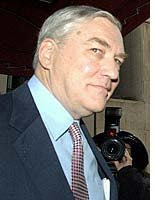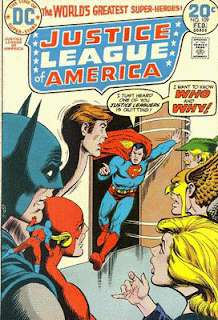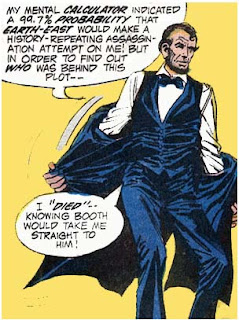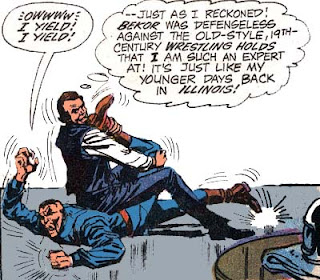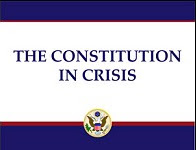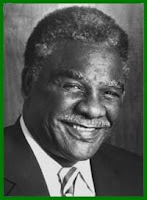
For many Chicagoans, the "Where were you when..." question, such as the John F. Kennedy assassination, is one asked about the November 25, 1987 death of Harold Washington, the city's first black mayor.
I had a day off from my job at the time at the Bismarck Hotel where many politicians would meet for lunch, so I watched the television coverage--the soap operas were preempted by the news that the mayor had collapsed in his city hall office.
I met the mayor twice, and found him to be the probably one of the warmest and most charming men I've ever encountered. The second time was a month before his death. Although he was clearly terribly overweight, he didn't seem anywhere near death as he asked me and my girlfriend all kinds of questions while he patiently waited for his dinner at a Chicago Loop restaurant. Here was a man, I though, who was genuinely interested in others.
I asked how come he almost never dined at the Bismarck, which was located a half-block from city hall, he replied, "Soon, John...soon."
But I was not a supporter of his. I didn't live in Chicago in 1983 when Washington pulled off an upset win over the incumbent, Jane Byrne, and current mayor Richard M. Daley. Four years later, I voted for Jane Byrne in the Democratic Primary and Ed Vrdolyak--who's currently under indictment on fraud and bribery charges--in the general election. I'm not particularly proud of those votes, but I just couldn't knock the chad off for Harold.
Even in my twenties, I had an antipathy about "movement" politics, viewing them as high on ideals, but low on common sense. Although a product of Chicago machine politics, by the 1970s, Washington presented himself to voters as a reformer.
Several mayoral appointments Washington made were very troubling. His longtime friend Clarence McClain, who was a top campaign aide in Washington's 1983, as well as his almost-forgotten 1977 run for mayor--lived in Harold's Hyde Park apartment building.
The media uncovered an old pimping conviction of McClain's, and Washington had to let him go from his position as director of intergovernmental affairs. McClain wasn't very far removed from power--becoming a consultant. After Washington's death, McClain went to prison for accepting bribes to ensure a New York firm would be awarded a lucrative collections contract.
Mayor Washington promoted Robinson to chairman of the CHA. By 1987, Robinson's inept stewardship forced the federal government to begin the process of placing the housing authority in receivership--a compromise betweed Department of Housing and Urban Development avoided the indignity for Chicago.
Then there is Robert Mier. Washington chose the academic as his director of economic development. Mier was the wrong man for the job, but let's not be too hard on him. Washington's successor, Eugene Sawyer, kept him in place. Chicago's days as an industrial behemoth were over by the time Washington became mayor--when factories closed, for example Wisconsin Steel in 1980--business sages knew at the time that they would never reopen.
But not Mier. Smaller industrial sites, especially in neighborhoods, to use a new word at that time, that were "gentrifying," were viewed as attractive sites for upscale housing and retail developments. But Mier wanted to keep these areas in an abandoned state, so when the Chicago economy improved, new captains of industry could swoop in, open the gates, and put Chicagoans back to work.
It didn't happen that way because it couldn't happen that way. Mier was reading from a 19th century playbook--and the new Chicago, as well as the new America--was one where information and ideas were the prime commodity.
Drive around Chicago today, particularly in former industrial zones such as Ravenswood and Elston Avenues, and you'll see how wrong Mier was.
Mier was shipped back to academia by Sawyer's successor, current Mayor Richard M. Daley, shortly after being sworn in as mayor.
On the positive side of Washington's four and a half years as mayor, after his election African-Americans could finally believe that Chicago was their city too. Spending for city services became more equitable--minority neighborhoods weren't at the end of the line.
The mayor made some bad appointments, but he also jettisoned two men who had it coming.
Washington forced city sewer commissioner out of his job, which led to his end of his reign as Chicago's last "Plantation Ward Boss." Quiqley was committeeman of West Side 27th Ward, one that had few white residents other than a gaggle of Quigley's sewer cronies--almost everyone else living there was African-American.
Another powerful ward committeeman, Ed Kelly of the 47th Ward, was maneuvered out of his job as chairman of the Chicago Park District by Washington. Discrepancies between spending in parks in white neighborhoods and minority areas were glaringly obvious to even casual observers. Tiny Welles Park, within walking distance of Kelly's North Side home, was a jewel among Chicago parks. It's still pretty nice.
Washington had to face a hostile City Council for his first three years as mayor, dubbed the "Vrdolyak 29." For eighteen months, Harold could finally rule as an effective mayor. Even so, for a while, rather than being a rubber-stamp body that it is now--and it was that way before he became mayor--the council worked as a legislative body. An unintentional reform, but a reform all the same.
To comment on this post, or to vote in the Pajamas Media presidential straw poll, please click here.
Read more...
 Wow. What a difference a day and a
Wow. What a difference a day and a 







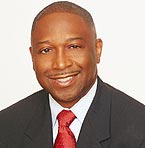
.jpg)
